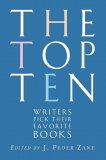Hugo and Nebula Award Nominees
March 29th, 2007 at 8:15 am (Awards, Lists)
The nominees for the Hugo Award have been announced. This list of nominees, along with the list of Nebula Award nominees, creates an excellent yearly science fiction reading plan. I used to make an effort to read all the nominess for both awards (there’s generally a lot of overlap), but lately I’ve been lucky to read two science fiction books a year!
The Hugo Award is chosen by science fiction fans. This year’s nominees are:
- Eifelheim by Michael Flynn. “A present-day scientific odd couple who are longtime domestic partners, physicist Sharon Nagy and historian Tom Schwoerin, look into the fate of the Black Forest village of the title, which apparently vanished in the plague year 1348, in Flynn’s heartbreaking morality play of stranded aliens in medieval Germany.”
- His Majesty’s Dragon by Naomi Novik. “In this delightful first novel, the opening salvo of a trilogy, Novik seamlessly blends fantasy into the history of the Napoleonic wars.” Patrick O’Brian with dragons?
- Glasshouse by Charles Stross. “In an era of virtual immortality, where computer backups of human consciousness have become as routine as unlimited body modification, Robin is a patient in a rehab clinic for convalescents of voluntary memory erasure. With only scant clues, contained in a letter from his former self, to his previous and possibly espionage-related career, Robin quickly discovers his new identity offers little protection from several would-be assassins.”
- Rainbows End by Vernor Vinge. “Circa 2025, people use high-tech contact lenses to interface with computers in their clothes. ‘Silent messaging’ is so automatic that it feels like telepathy. Robert Gu, a talented Chinese-American poet, has missed much of this revolution due to Alzheimer’s, but now the wonders of modern medicine have rehabilitated his mind. Installed in remedial classes at the local high school, he tries to adjust to this brave new world.”
- Blindsight by Peter Watts. “In the late 21st century, when something alien is discovered beyond the edge of the solar system, the spaceship Theseus sets out to make contact. Led by an enigmatic AI and a genetically engineered vampire, the crew includes a biologist who’s more machine than human, a linguist with surgically induced multiple personality disorder, a professional soldier who’s a pacifist, and Siri Keeton, a man with only half a brain.”
The Nebula Award is selected by writers. This year the nominees are:
- The Privilege of the Sword by Ellen Kushner. “Coming-of-age gets complicated for winsome Lady Katherine Samantha Campion Talbert after she’s shipped off to her uncle, the Mad Duke of Tremontaine (aka David Alexander ‘Alec’ Tielman Campion), who reigns over a decadent world of erotic and political intrigue.”
- Seeker by Jack McDevitt. “In 2688, interstellar transports Seeker and Bremerhaven left a theocratic Orwellian Earth to found a dictator-free society, Margolia — and vanished. Nine thousand years later, with a flawed humanity spread over 100-odd worlds, Margolia and its ships have become Atlantis-type myths, but after a cup from Seeker falls into the hands of antiquarian Alex Benedict, [he] determines to win everlasting fame and vaster fortune by finding them.”
- The Girl in the Glass by Jeffrey Ford. “A band of con artists–cum–spiritual mediums focus their psychic and sleuthing powers on a murder mystery in Ford’s offbeat, thoroughly researched fifth novel, set in Depression-era Long Island, on the posh North Shore.”
- Farthing by Jo Walton. “Walton crosses genres without missing a beat with this stunningly powerful alternative history set in 1949, eight years after Britain agreed to peace with Nazi Germany, leaving Hitler in control of the European continent.”
- From the Files of the Time Rangers by Richard Bowes. “The individual tales that make up Bowes’s ‘mosaic’ novel add up to a relatively coherent alternate history of Greek gods, men, heroes and cyborgs. Apollo, Bacchus and Pluto have been having their fun for millennia, but just up the Time Stream disaster looms, so they have recruited lost children to become “Time Rangers,” humans able to surf the Time Stream at will and perhaps change history to the gods’ advantage.”
- To Crush the Moon by Wil McCarthy. “Conrad Mursk has returned to Sol on the crippled starship Newhope. His crew are the frozen refugees of a failed colony known as Barnard’s Star. A thousand years older, Mursk finds Sol on the brink of rebellion, while a fanatic necro cult is reviving death itself.”
I haven’t read any of these books. In fact, I’ve only read one of the authors: Vernor Vinge, whom I like. But in compiling this list, the books that sounded most interesting were Blindsight and Michael Flynn’s 2004 book, The Wreck of The River of Stars.
